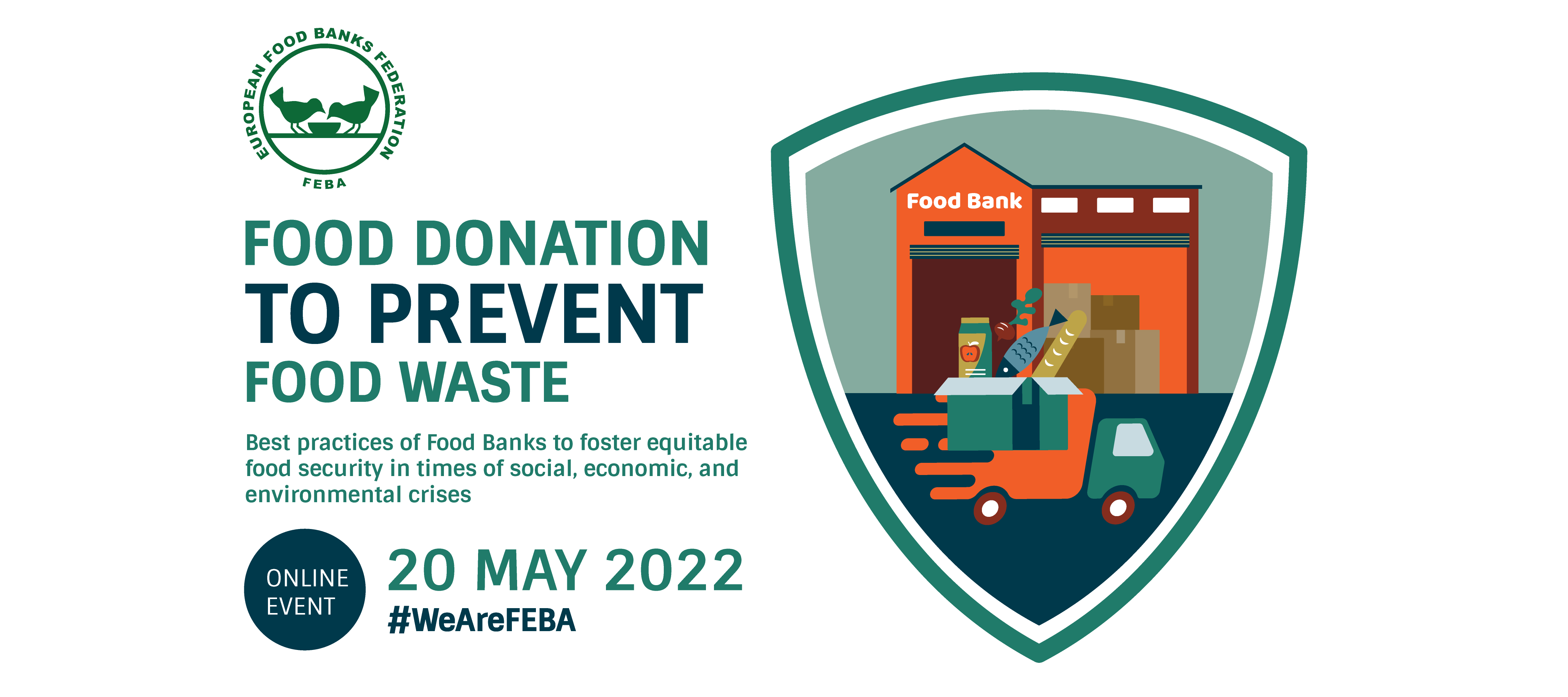
At EU level, we have witnessed increasing efforts to prevent food losses and waste and by the end of 2023, the European Commission is set to present legally binding targets to reduce food waste across the EU.
By conducting their activities, Food Banks do not just support the resilience and functionality of the food system and provide food to charities helping people in need but can play an essential role to support EU policy makers and food business operators in resolving the challenges related to the achievement of the envisaged targets.
In the light of this, the European Food Banks Federation (FEBA) is organised a virtual discussion on “Food Donation to prevent food waste. Best practices of Food Banks to foster equitable food security in times of social, economic, and environmental crises” on 20 May 2022.
Next to the interventions of high-level speakers, Food Banks’ representatives from five EU Member States were given the floor to introduce their best practice activities to prevent food waste and foster food security, which is under increasing pressure due to the ongoing COVID-19 pandemic and the Russia-Ukraine conflict.
On the occasion of the event, FEBA released the policy report Food Donation to prevent food waste: FEBA’s position on the proposal for EU-level food waste reduction targets featuring case studies from FEBA Members in Greece, France, Czech Republic, Italy, and Ireland.
The European Food Banks Federation (FEBA) is a European non-profit organisation and works in collaboration with 24 Full Members and 6 Associate Members in 30 European countries. Since 1986, FEBA’s mission has consisted in representing its membership at European and international level; supporting and strengthening Food Banks in Europe by providing training, sharing best practices and knowledge, establishing partnerships; and fostering the creation and development of new Food Banks. FEBA brings together a network of Food Banks which are committed to prevent food waste and to reduce food insecurity.
In 2021, the 341 Food Banks belonging to our membership redistributed 907,280 tonnes of food to 45,810 charitable organisations providing food assistance to 11.8 million most deprived people thanks to the professionalism of 39,781 co-workers (83% volunteers). In addition to surplus food from the food supply chain, FEBA Members also redistribute food from the Fund for European Aid to the Most Deprived (FEAD) and the EU Fruits and Vegetables withdrawal scheme, as well as from individual and corporate food collections.
Funded by the European Union. Views and opinions expressed are however those of the author(s) only and do not necessarily reflect those of the European Union or the European Commission. Neither the European Union nor the granting authority can be held responsible for them.

| Cookie | Duration | Description |
|---|---|---|
| cookielawinfo-checkbox-analytics | 11 months | This cookie is set by GDPR Cookie Consent plugin. The cookie is used to store the user consent for the cookies in the category "Analytics". |
| cookielawinfo-checkbox-functional | 11 months | The cookie is set by GDPR cookie consent to record the user consent for the cookies in the category "Functional". |
| cookielawinfo-checkbox-necessary | 11 months | This cookie is set by GDPR Cookie Consent plugin. The cookies is used to store the user consent for the cookies in the category "Necessary". |
| cookielawinfo-checkbox-others | 11 months | This cookie is set by GDPR Cookie Consent plugin. The cookie is used to store the user consent for the cookies in the category "Other. |
| cookielawinfo-checkbox-performance | 11 months | This cookie is set by GDPR Cookie Consent plugin. The cookie is used to store the user consent for the cookies in the category "Performance". |
| viewed_cookie_policy | 11 months | The cookie is set by the GDPR Cookie Consent plugin and is used to store whether or not user has consented to the use of cookies. It does not store any personal data. |